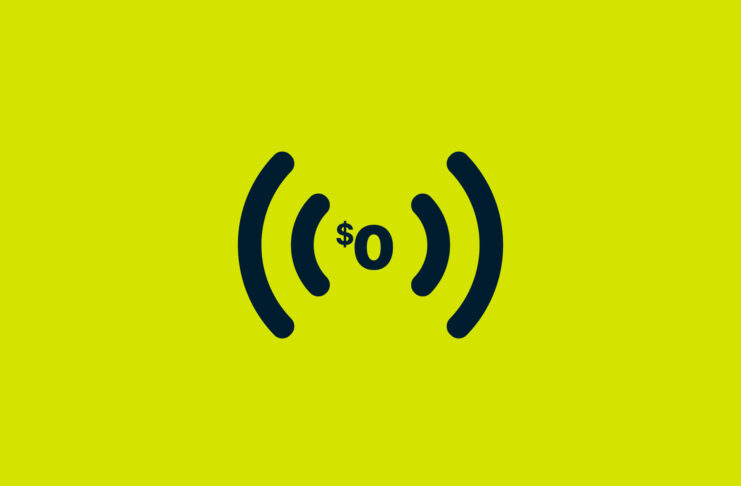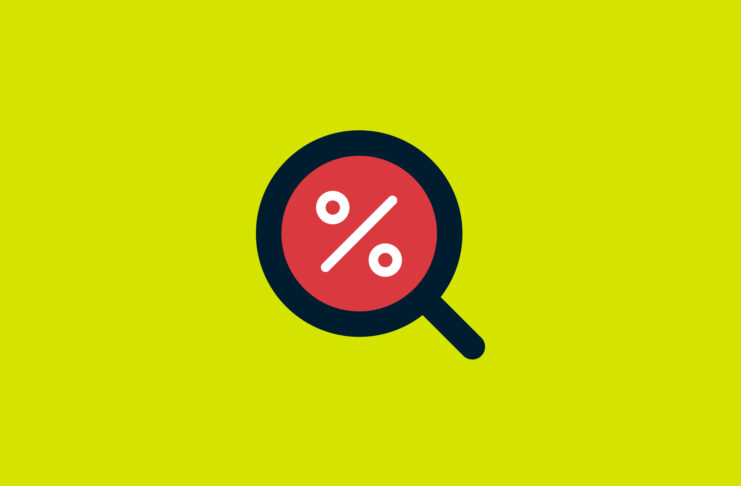So, you’ve decided to explore the dark web. First, you need to know how to access the dark web, and once you’re in, you can’t just perform a normal Google search. You’ll need a dark web search engine, and we’ve compiled the best ones for you to try.
What is the dark web?
The dark web is a part of the internet that isn’t indexed by traditional search engines like Google—you can’t find it through standard browsing. It’s accessed using specialized software called Tor (The Onion Router), which anonymizes users and hides their locations. While many people use the dark web for legitimate reasons like privacy (such as journalists or activists in oppressive regimes), it’s also known for illegal activities. This can include the sale of drugs, weapons, stolen data, and counterfeit items.
Before you download Tor, make sure you’re taking precautions to keep yourself safe at all times. Using a VPN with Tor provides an extra layer of protection when accessing the dark web. While Tor helps anonymize your online activity by routing your traffic through multiple volunteer-operated servers, a VPN adds further security by encrypting your internet connection before it enters the Tor network. This means your ISP (internet service provider) won’t know you’re using Tor, and potential attackers on Tor can’t easily track your true IP address at vulnerable nodes.
A VPN also shields your data from prying eyes, making it much harder for anyone to monitor or trace your activity on the dark web.
What is a dark web search engine?
Before we get into dark web search engines, let’s get into what the dark web is. The dark web is a hidden collective of sites that you can only access through special browsers, most commonly Tor Browser. Data sent through the dark web is encrypted and relayed through multiple nodes hosted by a global network of volunteers. This setup ensures users and website operators are able to remain anonymous.
Read more: Deep web vs. dark web: What’s the difference?
The dark web has a reputation for being a shady marketplace, but it has many legitimate uses, too. For example, journalists and informants can securely communicate and share sensitive information over the dark web wherever they are and without risk of interception. Several news and information sites like The New York Times and the BBC also have Tor versions, which can provide the news to places where their normal sites are censored.
But the dark web is not the easiest place to navigate: dark web links are long, and the sites are generally not household names. Websites on the dark web are hosted and accessed on the Tor network; you can identify them by their use of Tor’s top-level domain “.onion.” Dark web links aren’t listed on regular search engines, so a Google search will not be of any help. To search the dark web, you’ll need to first head to a dark web search engine.
5 Best search engines for the dark web
Ready to explore and tap into the resources of the dark web? Here are the best dark web search engines to use.
1. Torch: One of the oldest dark web search engines
Torch is probably the most well-known dark web search engine, and it is also one of the oldest. The search engine crawls and indexes onion sites every day, and it has one of the largest numbers of onion search results. It also loads pretty fast, and the interface is reminiscent of Google’s, making it feel familiar. Owing to its large search library, Torch is probably the best search engine for exploring the dark web. A familiar interface and fast loading speeds are the icing on the cake.
One thing to be wary about is that, like most dark web search engines, Torch doesn’t filter websites. This increases the likelihood of stumbling onto a malicious webpage or harmful material.
2. Ahmia: A powerful dark web search engine
Ahmia is a robust dark web search engine. Aside from serving you search results, the search engine can be used to view statistics, insights, and news about the Tor network, making it an incredibly useful tool for anyone looking to explore the dark web. Unlike other dark web search engines, Ahmia has a policy against “abuse material” and blocks them.
3. DuckDuckGo: More than a dark web search engine
It might be the most recognizable name on the list, and we’ve championed its use as a regular search engine for a while now. DuckDuckGo is a privacy-friendly search engine that works across all major browsers like Chrome and Firefox, but did you know that it’s also the default search engine for the Tor Browser?
DuckDuckGo doesn’t log your activity, so your search habits, dark web or not, remain private to you. The only downside to DuckDuckGo is that it might show you fewer dark web search results compared with the other search engines on this list.
4. Haystack: Largest dark web search engine index
Haystack just might have the most indexed dark website on any dark web search engine at over 1.5 billion indexed pages. It runs on a freemium model, however, so you will have to pony up some cash to go ad-free and for features like access to historical versions of websites. Like DuckDuckGo, Haystack is a privacy-friendly choice, promising not to track your data or compromise your privacy for profit.
5. The Hidden Wiki: Best dark web directory
While technically not a search engine, we’re including The Hidden Wiki for its helpfulness in exploring the dark web. Working more like a directory, it makes it easy to navigate the dark web by providing a categorized directory of indexed links. The Hidden Wiki also blocks many malicious sites on the dark web from appearing on its directory, but as with all dark web search engines, some shady sites still make it to the list.
You can’t really go wrong with the above five dark web search engines, but there are others out there that have entered the fray—with varying success. Here are five on our radar that, unfortunately, seem to experience a lot of downtime:
- Not Evil. No, the name Not Evil isn’t reverse psychology; it’s a play on Google’s old motto: Don’t be evil. Cheeky naming aside, Not Evil has more than 32 million sites indexed and 14 million onion links.
- Candle. Candle looks and works a lot like the Google search engine, which makes it instantly familiar to many users. However, its search library is relatively small at 100,000 web pages, which pales against the other search engines on this list.
- Recon. It’s most known for its use in exploring the infamous marketplaces of the dark web. Its results cover active marketplaces and vendors and allow for cross-referencing of vendor details, listings, and more.
- Dark Search. Relatively new to the dark web search engine scene is the aptly named Dark Search. It offers an easy-to-use interface and free access to onion links and sites.
- Onion Search. Onion Search helps you easily access Onion sites. It vows to remove reported child abuse content. Notably, the search engine mentions that it is “fully compliant with the Law of France.”
Things to keep in mind when browsing the dark web
The dark web is unregulated, which is why it is important to protect yourself while browsing. Here are some things you should do when accessing the dark web.
- Avoid downloading files from the dark web. The dark web’s dodgy reputation isn’t for nothing. Files on the dark web are likely malware-laden.
- Don’t click on unfamiliar or suspicious links. While it’s hard to avoid clicking on links when exploring dark web directories and search engines, there are plenty of scam pages on the dark web; it’s best to exercise caution.
- Don’t submit personal information. Never submit personal information of any kind on the dark web. If you need to use an email address, create a new one, preferably from a privacy-focused email service like ProtonMail.
- Don’t buy anything on the dark web. We say this not only because there is no guarantee any seller on the dark web is legit but also because most things you can only buy on the dark web are illegal.
- Use a VPN. Connecting to a VPN first, then Tor, gets you all the privacy protection of the Tor network, plus added protection that prevents any Tor node from seeing your home IP address.
When using Tor without a VPN, each volunteer-operated node that your traffic passes through can potentially see some of your data. While Tor anonymizes your location, the exit node—the final point before your data reaches its destination—can view unencrypted information, such as the websites you’re visiting or data you’re transmitting. This means that, without additional protection like a VPN, your privacy is not fully secure. ExpressVPN adds an essential layer of encryption, ensuring that even if a Tor node intercepts your traffic, it cannot access your sensitive information, keeping you safer as you browse anonymously.
FAQ: About dark web search engines
How does a dark web search engine work?
Surprisingly, not too different from a regular search engine. You simply key in your search term into the search engine, and it will return the relevant results.
The reason you can’t simply search for dark web content on search engines like Google while using browsers like Chrome is that they do not have dark net access. As most users of popular search engines don’t use dark net software, popular search engines simply don’t crawl for them.
Specialized dark web search engines are designed to crawl and index dark web content, though sometimes, they also crawl for surface web content.
Is it illegal to just browse the dark web?
No, it isn’t illegal to browse the dark web. However, buying illegal items or conducting other illegal activity on the dark web remains illegal, just as it would in the physical world.
What happens if you go on the dark web without VPN?
The Tor Browser is one of the most secure and private ways to access the internet, including the dark web, with or without a VPN. However, connecting to a VPN first, then Tor, gets you all the privacy protection of the Tor network, plus added protection that prevents any Tor node from seeing your home IP address. You will also not have to worry about being flagged by your home network for using Tor, as all that network will see is encrypted traffic to your VPN server. Using a VPN with Tor also provides access to the Tor network even where it is blocked, such as corporate and school networks, or certain countries.
Is DuckDuckGo a dark web search engine?
You can use DuckDuckGo for surface web or dark web searches. However, to use DuckDuckGo for dark web searches, you will need to use it with the Tor Browser.
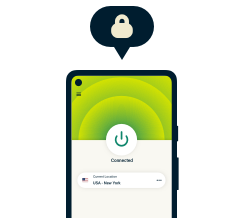
Protect your online privacy and security
30-day money-back guarantee
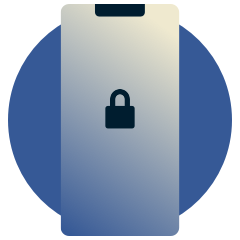
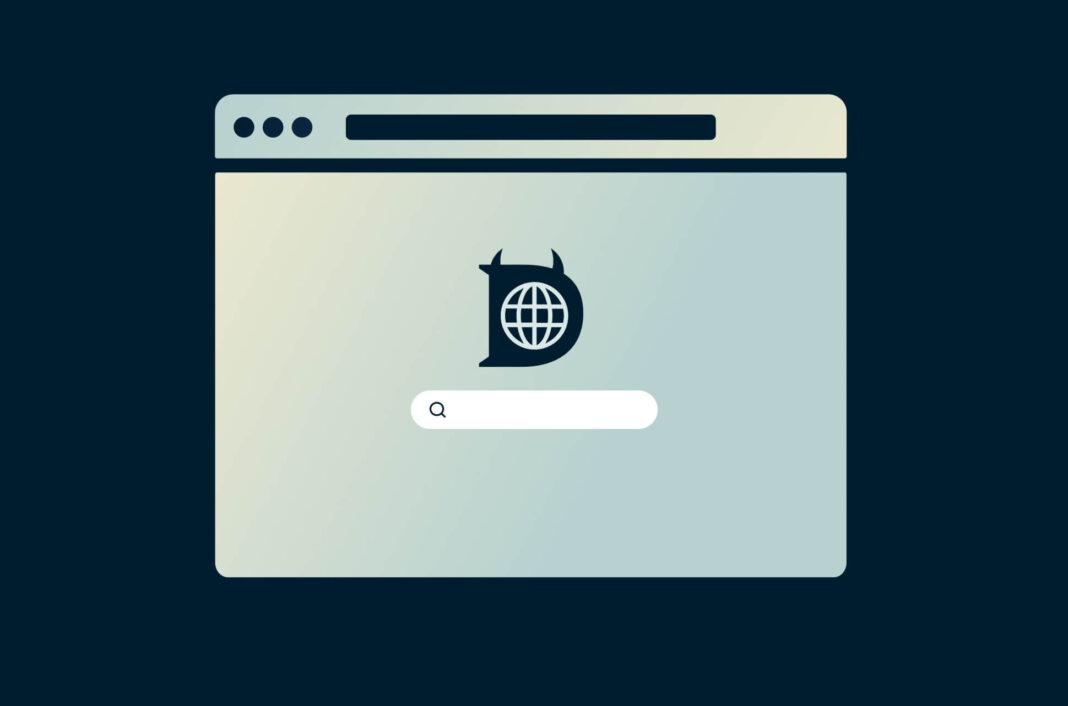


![[Quiz] How much is your data worth on the dark web? how much are you worth on the dark web (1)](https://s22908.pcdn.co/wp-content/uploads/2023/04/how-much-are-you-worth-on-the-dark-web-1-1-100x70.jpg)














